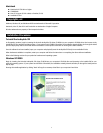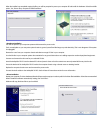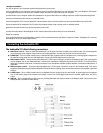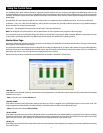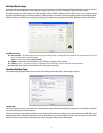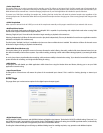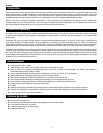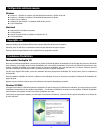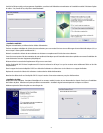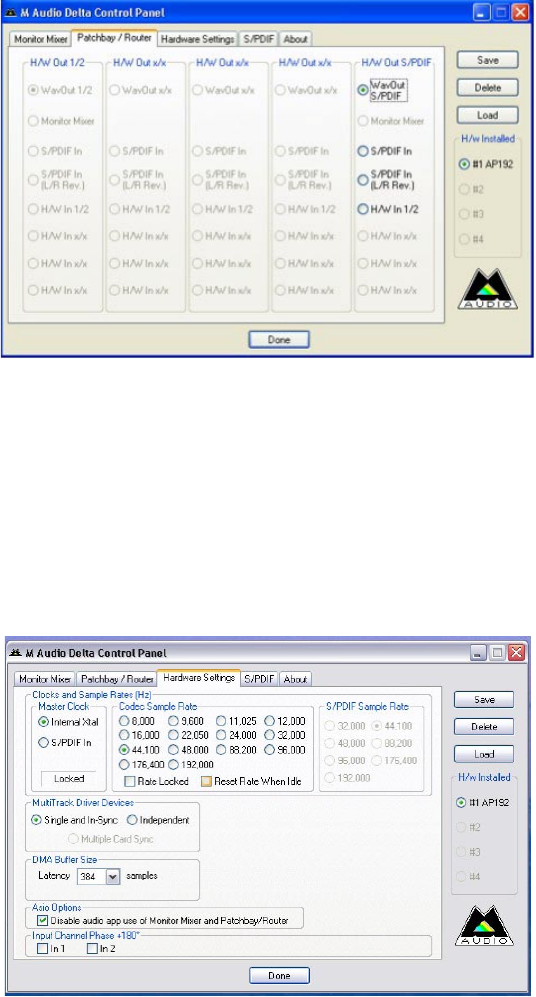
12
Patchbay/Router Page
The Patchbay/Router page provides output routing options for the Audiophile 192’s S/PDIF outputs. If additional Audiophile 192 cards are installed,
their outputs can also be addressed on this page by choosing the card number under ‘H/W Installed’ to display that card’s settings.
The default setting for the S/PDIF Output is the S/PDIF SW Return (WavOut S/PDIF in Windows, SW Out S/PDIF on Mac). This is usually the signal
assigned to the S/PDIF Output in your DAW application. If a different selection is made here, the output signal assigned in the DAW will be ignored.
Selection of H/W In 1/2 will allow you to convert the analog inputs to digital and route this signal to another digital device via the S/PDIF Output.
Available sources are:
<
WavOut S/PDIF* – The audio stream is output from your DAW application, as assigned to the Audiophile 192’s S/PDIF Outputs. The output
level is controlled within your DAW software.
*NOTE:
on the Mac this is labeled SW Out S/PDIF.
< S/PDIF In – audio input from the Audiophile 192’s S/PDIF Input connections (direct monitor).
< S/PDIF In (L/R Rev.) – The audio input from the Audiophile 192’s S/PDIF Inputs, with Left and Right channels reversed.
< H/W In 1/2 –audio input from the Audiophile 192’s Analog input connections.
Hardware Settings Page
The Hardware Settings page provides access to master clock settings, sample rate settings, buffer settings and more.
• Master Clock
This section selects the source of the master clock. Internal (default setting) selects the Audiophile 192’s internal clock, while S/PDIF In selects the
clock received through the S/PDIF input stream.
If Internal is selected, the status display will always show Locked. If S/PDIF is selected, the display will only show Locked when a valid S/PDIF signal
is detected at the input. It will display Unlocked if there is no valid S/PDIF input, or if the input signal is incorrect. When syncing to an external clock,
that external clock’s sample rate must be selected manually on this page to allow proper synchronization.



